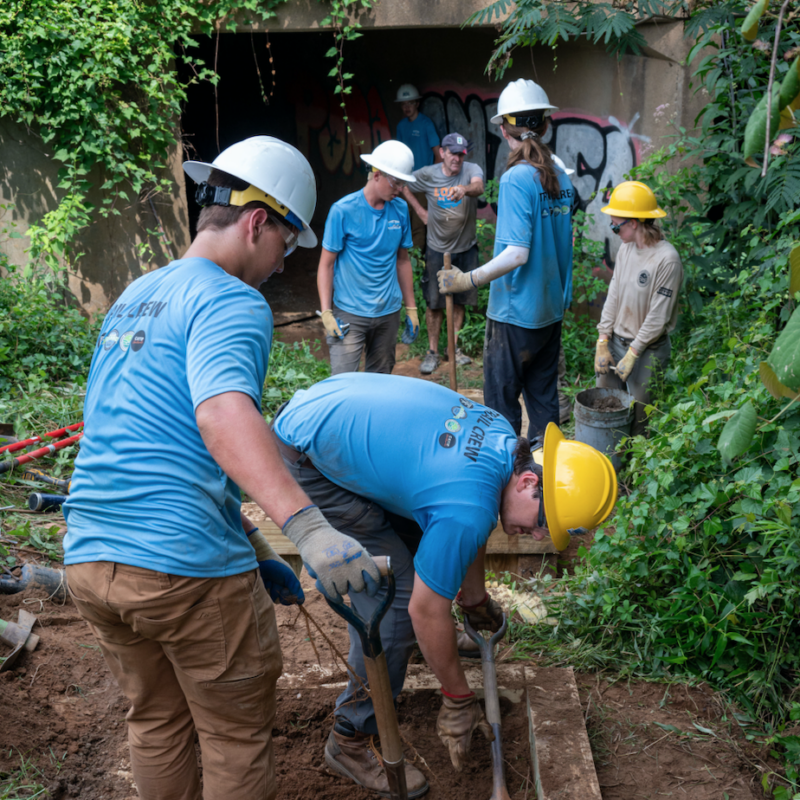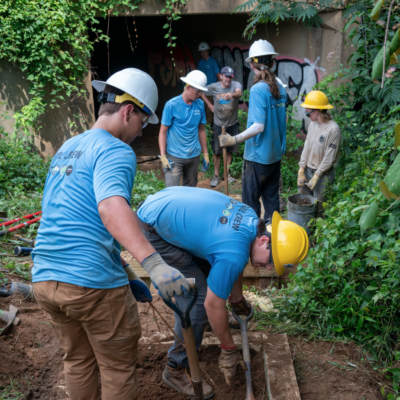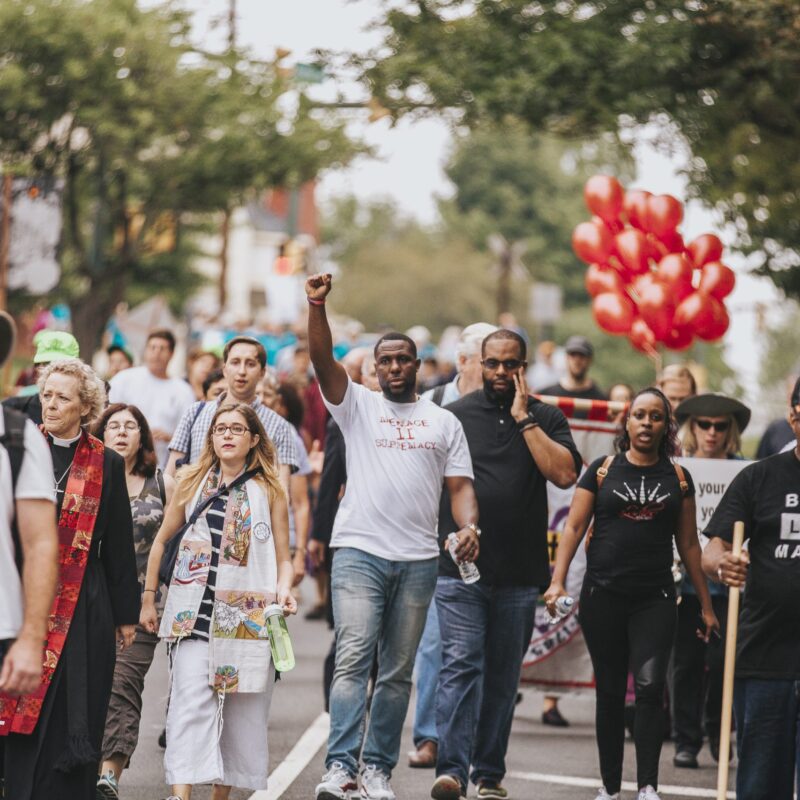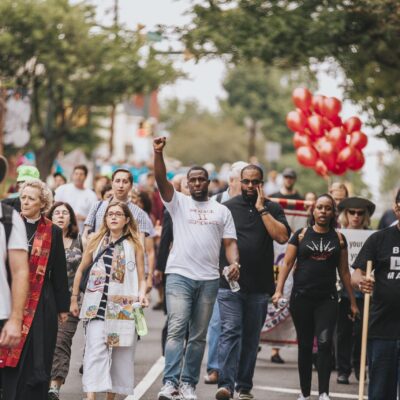Since last November’s elections removed from state and local office some of the biggest champions of the proposed Western Bypass, the decades-long debate over whether to build the 6.2-mile, $244 million road around Charlottesville has been in a holding pattern. Albemarle County has seated new anti-Bypass appointees on the area’s Metropolitan Planning Organization, which could block funding for the project. In Richmond, the newly elected Democratic governor and his transportation secretary pick say they may soon weigh in. And everybody has one eye on the Federal Highway Administration, which has final authority to move the Virginia Department of Transportation’s plans for the road forward.
Local proponents of the Bypass aren’t waiting in silence. Paul Wright, a former chairman of the Albemarle County Architectural Review Board who has worked for local Republican campaigns, announced the launch of a new nonprofit advocacy group called Bypass29Now. At a press conference at the County Office Building last week, he made a renewed case for local support of the road, pointing to a newly released UVA study that shows a majority of local residents want it.
“This road needs to be built, because we will never have an opportunity again in our lifetimes where we have the right of way, the money, the state approval, and a design that is ready to go forward,” said Wright.
Opponents claim overpasses at key congested intersections on 29 are a far cheaper alternative, he said, but they don’t take into account the money the state has already sunk into securing much of the right-of-way for the Bypass.
And, as he discussed in detail at the press conference, VDOT’s environmental data contradicts claims made by opposition group Bypass Truth Coalition, another 501c4 formed ahead of the last election, that the road would compromise air quality at the schools along the planned route.
According to a 2012 report on the project, VDOT predicts that thanks to stricter diesel standards, carbon monoxide levels will decrease in the area by 2040, with or without the Bypass—and that they’ll actually drop slightly more should the road be built, apparently because fewer trucks will be idling at stoplights.
“The facts remain that air quality is better and will improve, whether we build the road or not,” said Wright.
That doesn’t satisfy Randy Salzman, one of more than a dozen anti-Bypass activists who showed up at the press conference to pepper Wright with questions and counter-arguments.
Hundreds of studies show traffic pollution has a detrimental effect on child health, Salzman said, and better standards shouldn’t justify putting a road next to schools.
“The first rule of holes is, ‘When you find yourself in one, quit digging,’” he said. “It’s not ‘Grab a jackhammer.’”
Jeff Werner of the Piedmont Environmental Council, a longtime Bypass opponent who also listened in on Wright’s announcement, put it more bluntly.
“The cars on the Bypass could produce oxygen and maybe a delightful odor, and maybe make my teeth whiter, and it would still be a stupid, wasteful, ineffective project,” he said.
But what of the survey results? Tom Guterbock is the director of UVA’s Center for Survey Research, which conducts the biennial sampling of nearly 1,000 residents of Charlottesville, Albemarle, and surrounding counties with a list of questions—some paid for by local nonprofits, some, like the Bypass questions this year, put together by the center itself. Results are carefully weighted to accurately reflect gender, race, geographic distribution, homeownership, and whether the respondent was reached on a landline or cell phone.
Guterbock said that while there’s been some erosion in support for the idea of a Bypass—69 percent of people said they supported one in 2012, compared to 62 percent this year—the fact that 53 percent of respondents said they favored construction of the current proposed road is revealing.
“There’s not a great deal of fall off in support when you switch from a general bypass question to a specific one,” Guterbock said.
Wright said the survey clearly shows public opinion is aligned with current plans to build the road. But Salzman doesn’t think the results offer the whole story. It’s easy to make the Bypass sound good to people, because the promise of convenience is right there in the name, he said. But the arguments against the project—particularly that there’s a cheaper fix—are hard to convey in a telephone survey.
“When you bring your brain to the discussion, you begin to say, ‘Oh my God, look what’s about to happen,’” Salzman said.
“There is a feeling on both sides of this issue that ‘If the public only knew more, then they would think the way we do,’” Guterbock said. “In my own view, this has been a very well-aired debate.”
Whether all the talk at home will sway the state officials who have a hand on the purse strings remains to be seen.
“I think that there are plenty of facts that have already been laid out there, I will evaluate them,” newly appointed but yet-to-be-confirmed transportation secretary Aubrey Lane told NBC29 earlier this month. “A lot of the decisions, the best decisions particularly in transportation, need local support.”
SPEAK YOUR MIND. Consider yourself well-informed on the Bypass issue? Think there’s more to community input than a yes or a no? We want to hear from you. We’re asking readers to submit brief 300-word essays explaining their views on the project (we wish we could let you write longer, but we have to keep ’em short for space reasons). Send yours to news@c-ville. com by February 5, and be sure to include your full name and a phone number where we can reach you.





